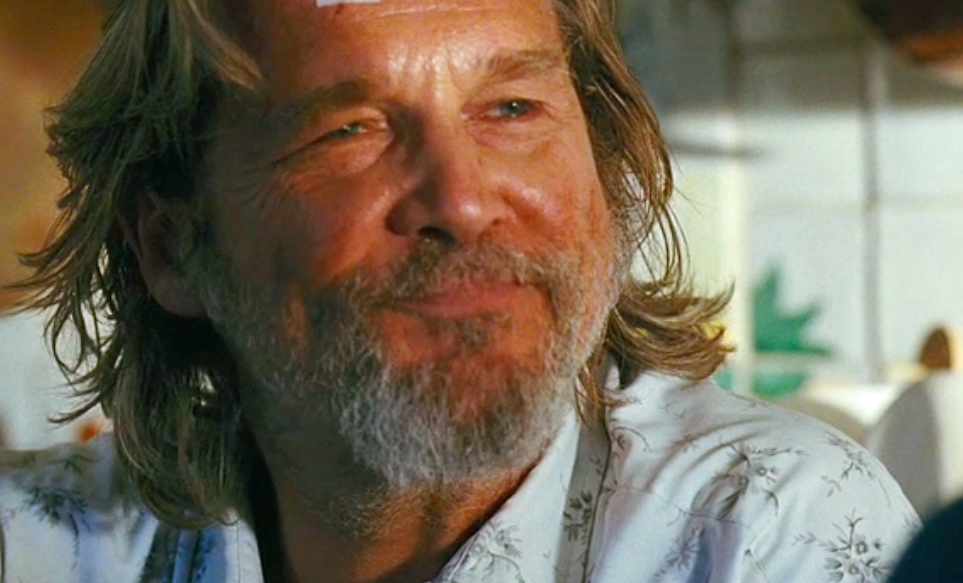After a career as a leading actor that began with “The Last Picture Show” in 1971 and has included four Academy Award nominations, Jeff Bridges seems poised to be nominated again for his pitch-perfect performance as Bad Blake, a broken-down country singer in “Crazy Heart.” His performance has been singled out in the best actor category of many film critics’ year-end awards. In my review elsewhere in this section, I note: “It’s like Bad has lived so long and been through so much that he’s too worn out to add any spin to exactly the way he feels.”
The following are 10 questions I posed to Bridges:
Q. This performance seems fueled by a lot of inner passion. It is about redemption and inner reclamation. You must have known people like Bad Blake. You show a lot of empathy.
A. Well, I know myself pretty well. I guess empathy starts there.
Q. Along comes a first-time director named Scott Cooper and makes one of your very best films. You knew him as an actor?
A. I didn’t know him as an actor. I originally turned down the script, not because I had any trouble working with a first-time director; some of my most gratifying and successful experiences have been with first-time directors. The screenplay was fine, but it was missing an essential ingredient; there was no music or music supervisor attached to this material. It was finding out that my old buddy T Bone Burnett was interested that got me to the party.
Q. Maggie Gyllenhaal’s character arrives at the correct note at the end, but not the expected one. That scene required subtle modulation from both of you.
A. It was a joy working with Maggie. Each take was fresh with unexpected results.
Q. Was “Crazy Heart” originally headed for cable?
A. I’m not sure if that’s true, but I do see Fox Searchlight as our hero. Getting distribution these days is tough. I don’t think we could have had a better distributor.
Q. Actually, three of your five Oscar nominations (I include this one) were directed by first-time filmmakers. You believe in newcomers.
A. I think first-time directors bring something wonderful to a movie. After all, we haven’t done much better than “Citizen Kane,” Orson Welles’ first movie.
Q. There was an excellent article about you some years back in the New York Times magazine, at the time of “Starman,” calling you something like the best American “effortless” actor. It’s true you never chew the scenery, or never even nibble. Is that innate or learned?
A. I’d say it’s a combination of both. A lot has to do with the bed I was born in. Lloyd and Dorothy Bridges were wonderful parents and teachers.
Q. Your first meaningful lead was in “The Last Picture Show.” That was one of those seminal films like “Bonnie and Clyde” that made new stars. But at the time, while you were shooting it, did you think it was going to be a landmark movie?
A. Even though most of the actors were green at the time, we knew we were involved in something very special. I think it stands by itself. It’s like nothing else, and nothing else is like it.
Q. “The Big Lebowski,” which features one of your most beloved performances, has inspired the Church of the Latter-Day Dude. Are you a devout believer?
A. I tend to be Buddhistly bent.
Q. “The Contender” was a political film really about something. And an illustration of the shark-like devouring of all celebrities, including political celebrities, that was unknown when you started out.
A. “The Contender” was a wonderful experience. Again, directed by a first-time director, Rod Lurie. He, like Scott Cooper, the director of “Crazy Heart,” was steeped in his subject. Rod knew all of the ins and outs of Washington, D.C.
Q. I was able to get “The Iceman Cometh” on DVD and be reminded of its greatness. What a cast. One of Frankenheimer’s finest hours, as he himself thought. Lee Marvin, Robert Ryan, Fredric March: three giants. You’d made some films by then, but it must have been a heady experience, and a taste of Frankenheimer’s experience with TV drama.
A. Yes, it was. That project was a turning point in my life. That was the film where I decided that I could make acting the focus of my career and bring my other interests, like music, art, photography, et cetera, to it.












